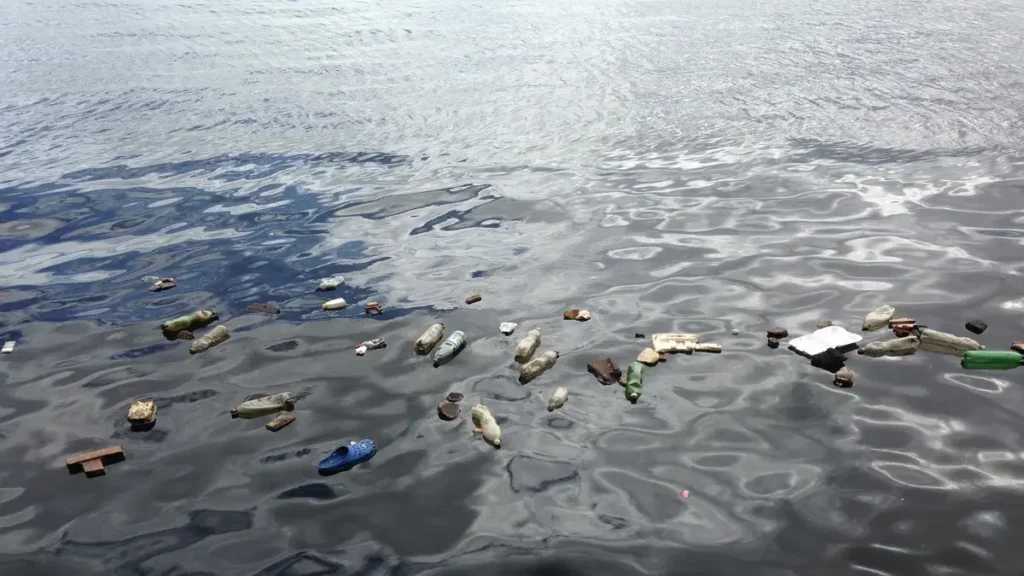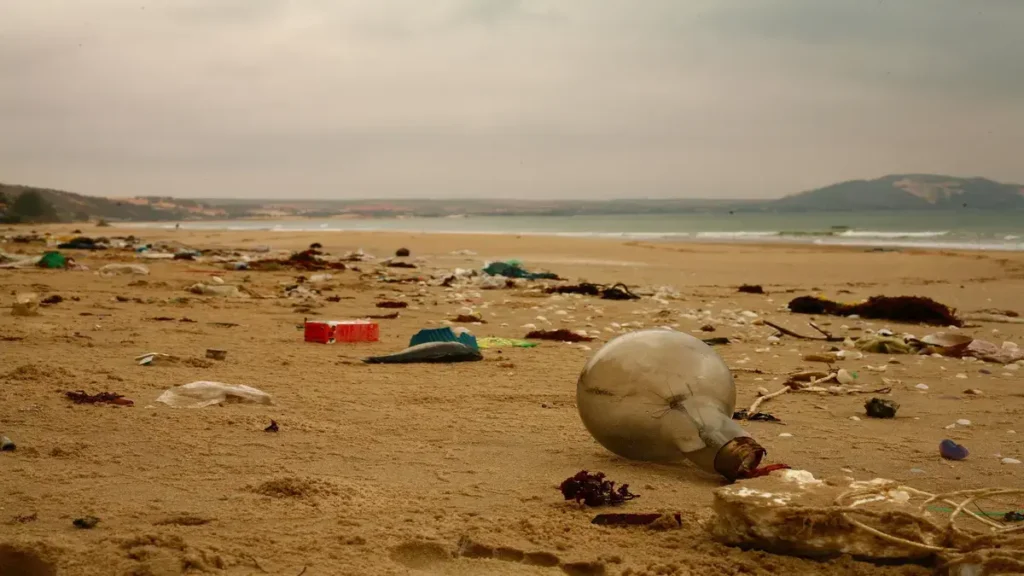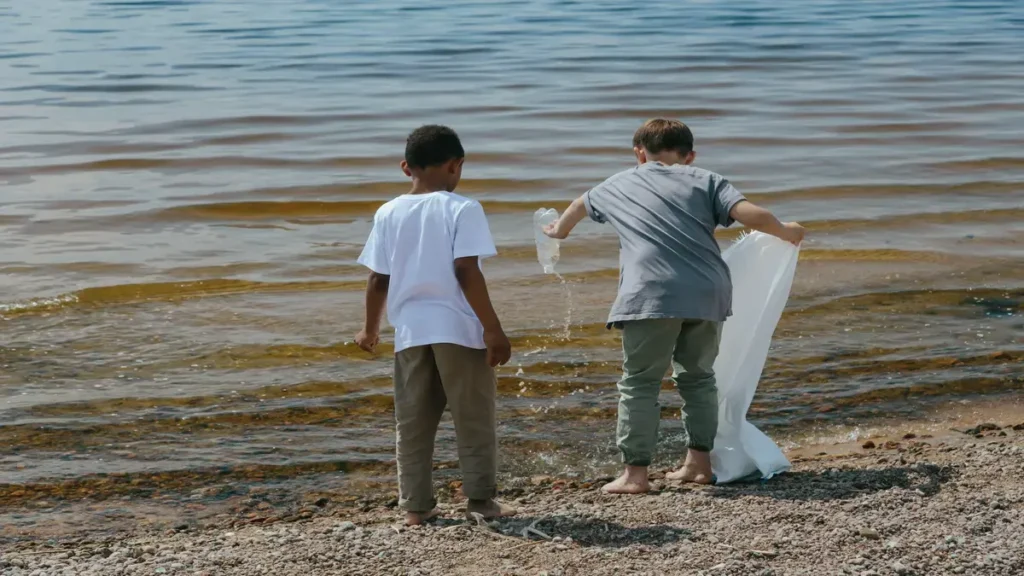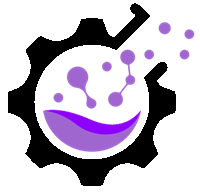Ocean Conservation Calls for Urgent Action
Ocean conservation is a critical battle in preserving our planet’s lifeblood. Delving into the depths of this field reveals a world where every effort can tip the scales toward rejuvenation or ruin. By safeguarding our seas, we directly uplift coastal communities that depend on these waters for survival. From ingenious devices that clean our oceans to cutting-edge monitoring systems, innovative technologies are sparking progress in the race to protect our aquatic sanctuaries. Let’s plunge into the blue to understand why protecting our oceans is not just an act of environmental activism, but a lifeline to humanity itself.
Key Takeaway
- Save ocean life by cutting pollution
- Protect beaches to help sea animals
- Use less plastic to keep oceans clean
- Stop overfishing to save fish numbers
- Plant sea grass to make oceans healthy

Exploring the Depths of Ocean Conservation Efforts
Ocean conservation is a critical issue that affects the health of our planet. The ocean covers more than 70% of the Earth’s surface and is home to a diverse range of species. Protecting this vast ecosystem is essential for maintaining biodiversity, supporting fisheries, and regulating the global climate.
Why Ocean Conservation Matters
The ocean plays a key role in our lives, even if we don’t live near the coast. It provides food, jobs, and recreation for millions of people. The ocean also absorbs carbon dioxide, helping to reduce the impacts of climate change. However, human activities like overfishing, pollution, and habitat destruction are threatening the health of marine ecosystems.
Current Ocean Conservation Strategies
There are many strategies in place to help protect the ocean. These include creating marine protected areas (MPAs), managing fisheries sustainably, and reducing pollution. Each strategy has its own set of challenges and successes.
- Marine Protected Areas (MPAs): MPAs are regions of the ocean where human activities are more strictly regulated than the surrounding waters to protect natural or cultural resources.
- Sustainable Fisheries: Sustainable fisheries aim to ensure that fish populations remain at healthy levels while providing economic benefits to communities.
- Reducing Pollution: Efforts to reduce pollution involve tackling sources such as plastic waste, oil spills, and agricultural runoff.
Marine Protected Areas (MPAs)
MPAs are a cornerstone of ocean conservation. They can help preserve critical habitats and provide safe havens for marine life to breed and thrive. However, creating and enforcing MPAs can be challenging. It requires international cooperation and support from local communities.
Successes of MPAs
When MPAs are well-managed, they can lead to increases in fish sizes and numbers. This can benefit not only the environment but also the fishing industry by providing more abundant fish stocks in surrounding areas.
Challenges of MPAs
One of the main challenges is ensuring compliance with MPA regulations. Illegal fishing and other banned activities can undermine the effectiveness of MPAs. Additionally, MPAs can be costly to monitor and enforce.
Sustainable Fisheries
Sustainable fisheries are vital for maintaining fish populations at a healthy level. This involves setting catch limits, using selective fishing gear to reduce bycatch, and protecting nursery habitats.
Benefits of Sustainable Fisheries
Practices that promote sustainable fisheries can lead to long-term economic benefits. Fishers can continue to earn a living, and consumers can enjoy seafood knowing it was caught responsibly.
Challenges of Sustainable Fisheries
One challenge is that not all countries have the resources to manage their fisheries sustainably. There’s also the issue of illegal, unreported, and unregulated (IUU) fishing, which can undermine conservation efforts.
Reducing Pollution
Reducing pollution is crucial for protecting marine life and human health. Efforts to tackle pollution include banning single-use plastics, improving waste management, and reducing nutrient runoff from agriculture.
Impact of Pollution Reduction
Cleaning up the ocean can lead to healthier marine ecosystems. It can also boost tourism and improve the quality of seafood.
Difficulties in Reducing Pollution
It can be hard to control pollution because it often comes from many different sources. Changing human behavior and industry practices is a slow process.
Community Involvement in Ocean Conservation
Local communities play a key role in ocean conservation. When people who live near the coast get involved, they can help enforce regulations and promote sustainable practices.
How Communities Help
Community-led initiatives can lead to more effective conservation. People are more likely to follow rules if they have a hand in creating them.
Supporting Communities
Providing education and economic incentives can encourage communities to participate in conservation efforts. This support can make a big difference in the success of these initiatives.
Future of Ocean Conservation
The future of ocean conservation depends on our actions today. With continued efforts and international cooperation, we can protect this vital part of our planet for future generations.
Technology and Innovation
New technologies, like satellite monitoring and electronic reporting, can help us better understand and protect the ocean.
Global Cooperation
Protecting the ocean requires countries to work together. International agreements and shared goals are important for making large-scale progress.
| Conservation Effort | Benefits | Challenges |
|---|---|---|
| Marine Protected Areas | Protects biodiversity, aids fish stocks | Enforcement, international cooperation |
| Sustainable Fisheries | Long-term economic benefits, healthy fish populations | Resources for management, IUU fishing |
| Reducing Pollution | Healthier ecosystems, improved tourism | Controlling multiple sources, changing behaviors |
In my opinion, while the challenges are significant, the ongoing efforts in ocean conservation are making a difference. It’s essential to continue supporting these initiatives and finding innovative solutions to protect our oceans. After all, the health of our oceans reflects the health of our planet.

How Ocean Conservation Benefits Coastal Communities
Ocean conservation is super important for the health of our planet, especially for people living near the coast. When we take care of the ocean, we’re also taking care of these communities. Let’s dive into how this works!
Protecting Marine Life
First off, the ocean is home to tons of creatures, big and small. By protecting the ocean, we make sure these animals stay safe. This is good for the environment and for people too. When fish and other sea life are doing well, fishermen can catch them and make a living. This means more jobs and food for coastal towns.
Keeping Beaches Beautiful
Everyone loves a clean beach, right? With ocean conservation, beaches stay pretty and clean. This is awesome for families who live by the coast because they can enjoy the beach anytime. Plus, tourists love visiting nice beaches, which means more money for local businesses.
Stopping Erosion
When we don’t take care of the ocean, the waves can get really rough and wash away the land. This is called erosion, and it can be a big problem for people living near the water. But with ocean conservation, we can help keep the land from disappearing. This means people’s homes and businesses are safer.
Preventing Pollution
Pollution in the ocean is a huge no-no. It can make the water dirty and hurt the animals. By keeping the ocean clean, we make sure the water is safe for swimming and fishing. This is super important for the health of people and the environment.
Benefits of Clean Water
- Safe to swim – No one wants to swim in dirty water!
- Healthy fish – Clean water means fish aren’t sick, so they’re safe to eat.
- Nice to look at – Clear water just looks better, and that’s good for everyone.
Boosting the Economy
When the ocean is healthy, it’s like a money-maker for coastal towns. People come from all over to have fun at the beach, go fishing, or take boat trips. This means more jobs and more cash for local shops and restaurants. It’s a win-win!
Jobs Created by Ocean Conservation
| Job Type | How It Helps |
|---|---|
| Marine Biologists | They study the ocean and help keep it healthy. |
| Fishermen | They catch fish for us to eat, using rules to protect fish numbers. |
| Tour Guides | They show visitors the beauty of the ocean and teach them about it. |
| Conservation Workers | They work on projects to protect the ocean and beaches. |
Education and Awareness
Teaching people about the ocean is a big part of ocean conservation. When folks understand why the ocean matters, they’re more likely to take care of it. This is really good for kids and adults because they learn how to protect the environment. Plus, it’s cool to learn about all the different animals and plants in the sea.
Ways to Teach About the Ocean
- School Programs – Schools can have classes about the ocean and how to keep it safe.
- Beach Cleanups – These are great for getting people to work together to clean up the beach.
- Museum Exhibits – Museums can show off all the neat stuff about the ocean and why it’s important.
Healthier Ecosystems
The ocean is like a big web where everything is connected. If one part gets sick, it can affect everything else. By keeping the ocean healthy, we make sure the whole ecosystem stays balanced. This is super important for animals and plants, and it helps people too because we’re all part of this big web.
Parts of the Ocean Ecosystem
| Part of Ecosystem | Why It’s Important |
|---|---|
| Coral Reefs | They’re like underwater cities for fish and other sea life. |
| Seagrass Beds | They’re like the grass in your yard, but for fish and baby sea creatures. |
| Mangroves | These trees grow in saltwater and help protect the coast. |
| Wetlands | These are like sponges that soak up water and give homes to birds and fish. |
Climate Change Mitigation
The ocean is really good at soaking up carbon dioxide, which is a gas that can make the Earth too hot. By taking care of the ocean, we help slow down climate change. This is a big deal because climate change can cause all sorts of problems, like super hot weather and big storms. So, ocean conservation is like helping to keep our planet cool and comfy.
How the Ocean Helps Fight Climate Change
- Absorbing CO2 – The ocean takes in carbon dioxide, which helps keep the air clean.
- Protecting Coasts – Healthy oceans mean fewer big waves and less flooding when storms hit.
- Supporting Marine Life – All the creatures in the sea play a part in keeping the ocean healthy.
In my opinion, ocean conservation is a really smart move. It’s not just about saving fish and pretty beaches; it’s about making sure people have jobs, clean water, and a safe place to live. It’s like when you take care of your garden, and it grows better. Taking care of the ocean helps everything grow better, too.
So, let’s keep working on ocean conservation. It’s good for the sea, it’s good for the animals, and it’s super good for us humans, especially those living by the coast. It’s a big job, but it’s worth it because the ocean is a huge part of our world. Let’s do our best to keep it safe and healthy!

Innovative Technologies Boosting Ocean Conservation Progress
Ocean Conservation is a critical effort to protect our planet’s oceans and marine life. With the help of innovative technologies, we are seeing significant strides in this field. These technologies are not just cool gadgets; they are powerful tools that help us understand and protect the ocean better.
Remote Sensing and Satellite Imagery
One of the most exciting areas in Ocean Conservation is the use of remote sensing and satellite imagery. These tools let us see what’s happening in the ocean from space! We can track things like illegal fishing, oil spills, and even the health of coral reefs.
| Technology | Use in Ocean Conservation |
|---|---|
| Satellites | Monitoring large ocean areas for illegal activities |
| Drones | Close-up views of hard-to-reach places |
| Remote Sensors | Collecting data on water temperature and quality |
Artificial Intelligence and Machine Learning
Another cool tech is Artificial Intelligence (AI). AI can look at all the data from the ocean and find patterns that humans might miss. It’s like having a super-smart friend who loves numbers and can help save the ocean.
- AI for Species Identification: AI can look at pictures and tell us what kind of fish or coral is in them.
- Machine Learning for Predictions: It can guess where animals might go or where pollution might spread.
Underwater Drones and Autonomous Vehicles
Underwater drones are like little submarines that can go deep into the ocean. They can take pictures, collect water samples, and even fix things underwater. This is super helpful because the deep ocean is a tough place for people to go.
| Underwater Vehicle | Role in Ocean Conservation |
|---|---|
| ROVs | Exploring and mapping the ocean floor |
| AUVs | Studying marine life without disturbing it |
| Gliders | Long-term monitoring of ocean currents and temperatures |
Plastic Cleanup Innovations
Plastic in the ocean is a big problem. But now we have machines that can help clean it up. Some of these machines are like big nets that catch plastic, and others are like vacuums that suck it up. It’s important to keep working on these because plastic hurts sea animals and the whole ocean.
Biodegradable Materials
Scientists are also making new materials that can break down in the ocean. This means less trash and less harm to sea life. It’s a smart way to stop the problem before it even starts.
Renewable Energy for Ocean Research
Using renewable energy like wind and solar power for ocean research is a game-changer. It means we can study the ocean without making it dirty with oil and gas. This is a win-win because we get to learn about the ocean and keep it clean at the same time.
3D Coral Reef Printing
3D printing is not just for toys and gadgets. We can now print coral reefs! These fake reefs give real corals a place to live and grow. It’s like building a new neighborhood for fish and other sea creatures.
Benefits of 3D Printed Reefs
- Helps coral larvae attach and grow
- Creates homes for many marine species
- Can be designed to fit specific needs of an area
Mobile Apps and Citizen Science
There are apps for everything, even for Ocean Conservation. Some apps let people report when they see pollution or wildlife. This helps scientists get more information from all over the world. It’s like having a whole army of helpers for the ocean.
| Mobile App | Contribution to Ocean Conservation |
|---|---|
| Marine Debris Tracker | Allows users to report trash they find |
| Whale Alert | Helps reduce ship strikes on whales |
| iNaturalist | Identifies and shares observations of marine life |
Genetic Research for Conservation
Scientists can now look at the DNA of sea creatures to learn more about them. This helps us protect them better because we understand their family tree and how they live. It’s like doing detective work for the ocean.
Applications of Genetic Research
- Tracking illegal fishing by looking at fish DNA
- Understanding how different species are related
- Finding out where animals come from and where they go
Water Quality Monitoring Systems
Clean water is super important for the ocean. Now we have tools that can check the water to make sure it’s not dirty or sick. These tools can even send information to scientists right away, so they can act fast if there’s a problem.
Advantages of Real-Time Monitoring
- Quickly tells us if the water is getting polluted
- Helps track the health of marine ecosystems
- Allows for fast response to environmental emergencies
In my opinion, these technologies are making a huge difference in Ocean Conservation. They help us see what’s happening under the water and take better care of our oceans. It’s important to keep using and improving these tools so we can protect the ocean for future generations.
Remember, the ocean is a big part of our planet, and it’s up to all of us to help keep it healthy. With these technologies, everyone from scientists to regular people can be a part of Ocean Conservation. It’s exciting to think about what new inventions will come next and how they will help our blue planet!
Frequently Asked Questions
Why is Ocean Conservation important?
Ocean Conservation matters because the sea is home to lots of creatures. It helps us by giving food and clean air. We need to keep it safe.
How can I help with Ocean Conservation?
You can help by using less plastic, cleaning up beaches, and telling others why the ocean needs us.
What happens if we don’t protect our oceans?
If we don’t act for Ocean Conservation, we could lose fish, have dirty beaches, and harm our health. It’s serious!
Can one person make a difference in Ocean Conservation?
Yes! Every person’s actions add up. By doing small things, you become a big help for the ocean.
What’s the biggest threat to our oceans?
The biggest threat is pollution, like trash and chemicals. This hurts sea life and makes the ocean sick. We need to stop the trash!

Este artigo foi criado pela nossa avançada ferramenta de criação de conteúdo. Quer produzir conteúdos de alta qualidade semelhantes sem esforço? Adquira nossa ferramenta hoje mesmo no Automatik Blog.







